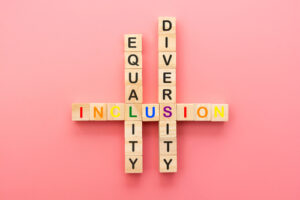Understanding the Impact of Diversity, Equity, and Inclusion (DEI) Programs in Education
At Extreme Investor Network, we believe in granting our readers a comprehensive view of contemporary issues shaping the economy and society at large. Recently, a new wave of discourse has arisen regarding Diversity, Equity, and Inclusion (DEI) initiatives implemented in educational institutions across the United States. While these programs aim to create a more equitable environment for students, the repercussions of their implementation—especially how they are perceived by students—are worth examining in depth.
DEI Programs: A Double-Edged Sword
Educational institutions have been fervently embracing DEI programs, targeting a more inclusive classroom environment that celebrates diversity. A recent study conducted by College Rover highlights the complexities of this initiative; while a reported 49% of college students felt more open to diverse perspectives due to DEI education, 30% indicated that these measures influenced their political leanings.
But what might seem like a noble pursuit has inadvertently sparked concerns about indoctrination. News sources and academic perspectives reveal that a significant number of students, about 15%, have felt pressured into aligning their answers and views with what they believe educators expect to hear. This means that many students feel compelled to accept left-leaning ideologies to avoid repercussions, such as lower grades.
An Education System in Flux
From middle school through to college, an alarming two in five students in the US have already taken courses explicitly addressing gender, race, or identity. Many reported heightened awareness of systemic inequalities and privilege due to DEI programming. Yet, one in ten students expressed discomfort discussing topics like gender identity and race in class settings, fearing backlash or misinterpretation.
This indicates a divide, not only in the student body but also in the educational approach itself. Are these programs, designed to foster understanding and acceptance, instead furrowing deeper divides among students?
The Hostility Factor: What Research Shows
A notable finding from a Rutgers University study sheds light on the adverse effects of poorly implemented DEI initiatives. The research pointed out that while DEI programs aim to reduce bias, some can foster hostility and divisive perceptions in classroom settings. Students holding conservative views reported feeling marginalized, with dissenters labeled as "oppressive" or "fascist" simply for having alternate perspectives.
The report underscores a critical paradox—while DEI measures aim to promote diversity respectfully, they can breed an environment where opposing views face significant hostilities. In fact, various educators have documented experiences where any criticism of DEI could lead to isolation and a backlash from their peers.
The Indoctrination Narrative
Critics of current educational practices argue that the long-term impact on students is shaping a generation more sensitive to perceived grievances, which can foster a culture of victimhood over personal empowerment. Incidents have surfaced where educators reportedly pressured students to adopt specific viewpoints in their assignments to secure favorable evaluations.
Jessica Jussim, Rutgers’ psychology professor, indicates in interviews that academic dissent has become increasingly hazardous. Publications reportedly refuse to print critiques of DEI measures, creating an echo chamber that stifles genuine academic discourse.
Conclusion: Striking a Balance
In our evaluation of DEI programs’ efficacy, it’s crucial to remember their fundamental goal: fostering understanding across different backgrounds. However, programs that lean too heavily on dogma create an environment where students feel unsafe expressing genuine beliefs or question prevailing narratives.
At Extreme Investor Network, we understand the critical balance needed in shaping the discourse surrounding DEI initiatives in education. As thought leaders, we advocate for authentic conversations that create room for diverse viewpoints—without the fear of retribution. Our goal is to support an educational landscape that encourages thoughtful engagement, creating an informed and empathetic generation of leaders.
As we navigate this complex terrain, we invite you to stay tuned with us at Extreme Investor Network for an in-depth analysis and insights into how economic paradigms are evolving along with our social constructs. Your thoughts on DEI and its impact on future generations are welcome—let’s explore these discussions together.

